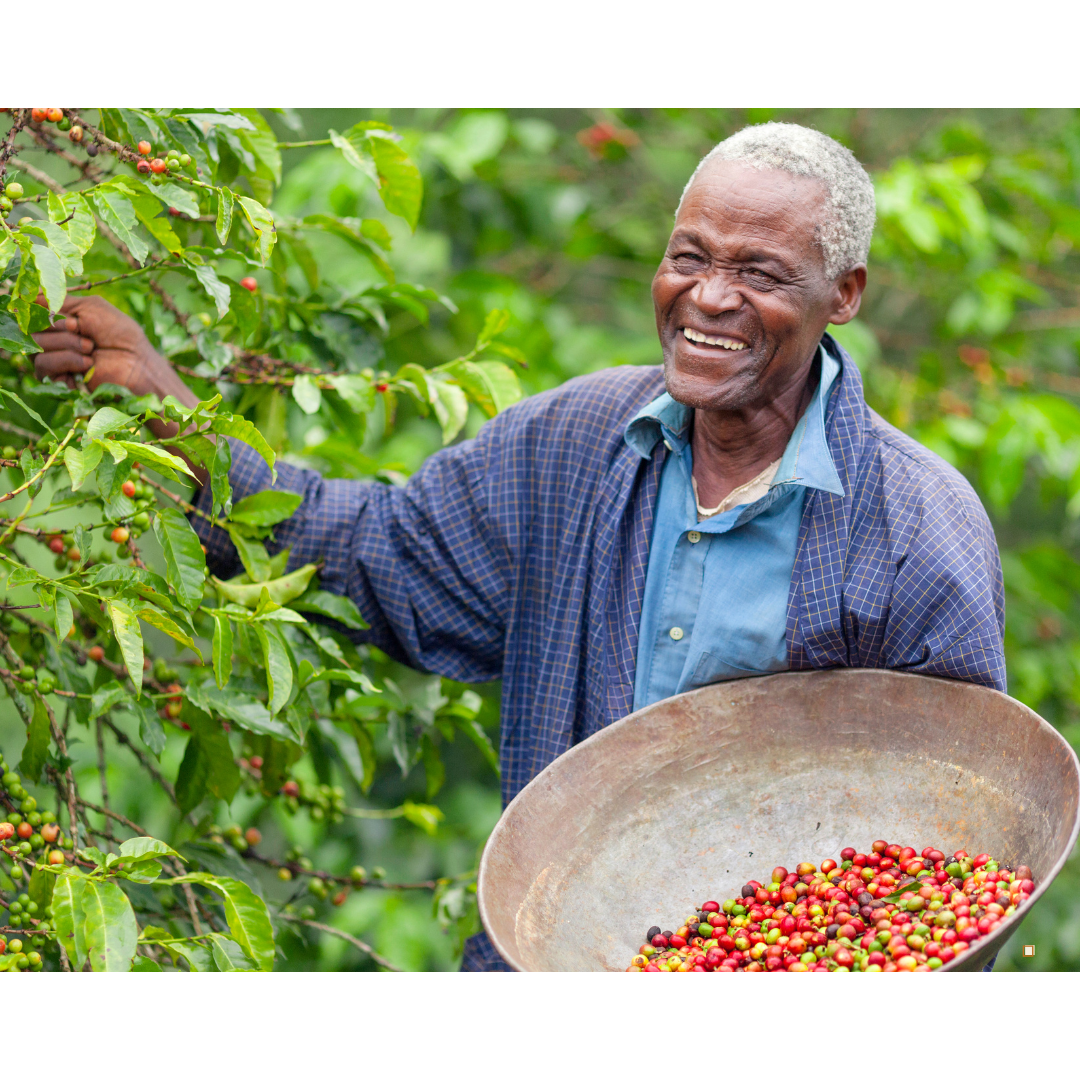
A Day in the Life of a Tanzanian Peaberry Coffee Farmer
Tanzanian Peaberry coffee is one of the world’s most sought-after beans, known for its bright acidity, fruity notes, and smooth body. But behind every bag of these exceptional beans lies the hard work and dedication of Tanzanian coffee farmers. Their daily lives revolve around cultivating and processing coffee, ensuring that each bean meets the high standards cherished by coffee enthusiasts.
Early Mornings on the Coffee Farm
The day begins at sunrise on the high-altitude slopes of Mount Kilimanjaro or Mount Meru, where many Tanzanian coffee farms are located. These regions are ideal for cultivating premium beans due to their nutrient-rich volcanic soil and temperate climate. Farmers typically start by inspecting their coffee trees, looking for signs of ripening cherries or potential pests.
Harvest season, which typically runs from June to October, is one of the busiest times of the year. Peaberries, a rare mutation found in about 5% of coffee cherries, require careful selection. Farmers hand-pick cherries at the peak of ripeness to ensure the highest quality. This labor-intensive process is a testament to the farmers’ commitment to excellence.
Midday: Sorting and Processing
After the morning harvest, the focus shifts to sorting and processing. Farmers carefully separate ripe cherries from underripe or damaged ones. This step is crucial, as only the best cherries will produce the vibrant flavors associated with Tanzanian Peaberry coffee.
The most common processing method is the washed (or wet) process, which enhances the beans’ clarity and bright acidity. Farmers depulp the cherries to remove the fruit, then ferment the beans in water to break down any remaining mucilage. After fermentation, the beans are washed again and laid out to dry on raised beds.
Drying is a meticulous process. Farmers regularly turn the beans to ensure even drying and protect them from mold or overexposure to sunlight. This stage can take several days, depending on the weather, and requires constant attention.
Afternoon: Community and Collaboration
Coffee farming in Tanzania is often a communal effort. Many farmers are members of cooperatives that provide resources, training, and a platform for selling their beans at fair prices. These cooperatives play a vital role in improving the livelihoods of farmers while maintaining high standards of quality.
Afternoons may involve meetings with cooperative members to discuss farming techniques, market trends, or sustainability initiatives. Some cooperatives also offer workshops on organic farming practices or new processing technologies, empowering farmers to enhance their crops and compete in the global market.
Evening: Preparing for Tomorrow
As the day winds down, farmers continue their work, often preparing for the next day’s harvest or maintenance tasks. They might prune coffee trees, apply natural fertilizers, or repair equipment. Maintaining the health of the coffee plants is a year-round effort that ensures consistent yields and quality.
Farmers also take pride in sharing their work with their families and communities. Coffee farming is deeply rooted in Tanzanian culture, passed down through generations. It’s not just a livelihood—it’s a way of life that connects families to the land and to each other.
Challenges Faced by Tanzanian Coffee Farmers
Despite their dedication, Tanzanian farmers face several challenges. Unpredictable weather patterns due to climate change can disrupt growing seasons and impact yields. Pests and diseases, such as coffee berry disease, pose ongoing threats to crops. Limited access to global markets and fluctuating coffee prices can also affect farmers’ incomes.
To address these challenges, many farmers are adopting sustainable practices, such as planting shade trees to combat soil erosion and using organic compost to enrich the soil. Cooperatives and NGOs are also working to improve infrastructure and provide training on climate-resilient farming techniques.
Connecting Farmers to the Global Market
The hard work of Tanzanian farmers culminates in beans that are prized by roasters and coffee lovers worldwide. Tanzanian peaberries, with their unique flavor and rarity, often fetch premium prices. However, ensuring that these beans reach global consumers while fairly compensating farmers remains a complex process.
Through partnerships with importers, Tanzanian coffee is making its way into specialty markets, where it is celebrated for its quality and story. Roasters play a crucial role in maintaining transparency and supporting sustainable practices, creating a win-win situation for farmers and consumers.
Bringing Tanzanian Peaberry Coffee to Your Home
For home brewers eager to experience the rich flavors of Tanzanian peaberries, accessibility and freshness are essential. At Frontier Coffee Roasters, we carefully source our beans to ensure the highest quality. While we don’t yet have direct relationships with farmers, our selection process guarantees that the beans we roast reflect the dedication and craftsmanship of Tanzanian coffee producers.
Our small-batch roasting approach highlights the unique characteristics of each bean, bringing out the bright acidity and fruity notes that make Tanzanian Peaberry coffee truly special. To ensure that our customers always enjoy the freshest beans, we prioritize fast delivery and offer a variety of roast levels tailored to different brewing methods.
With Frontier Coffee Roasters, you can savor the exceptional taste of peaberries and enjoy their vibrant flavors. Explore more at the Frontier Roasters Coffee Hub and the Tanzanian Peaberry Coffee Hub.

